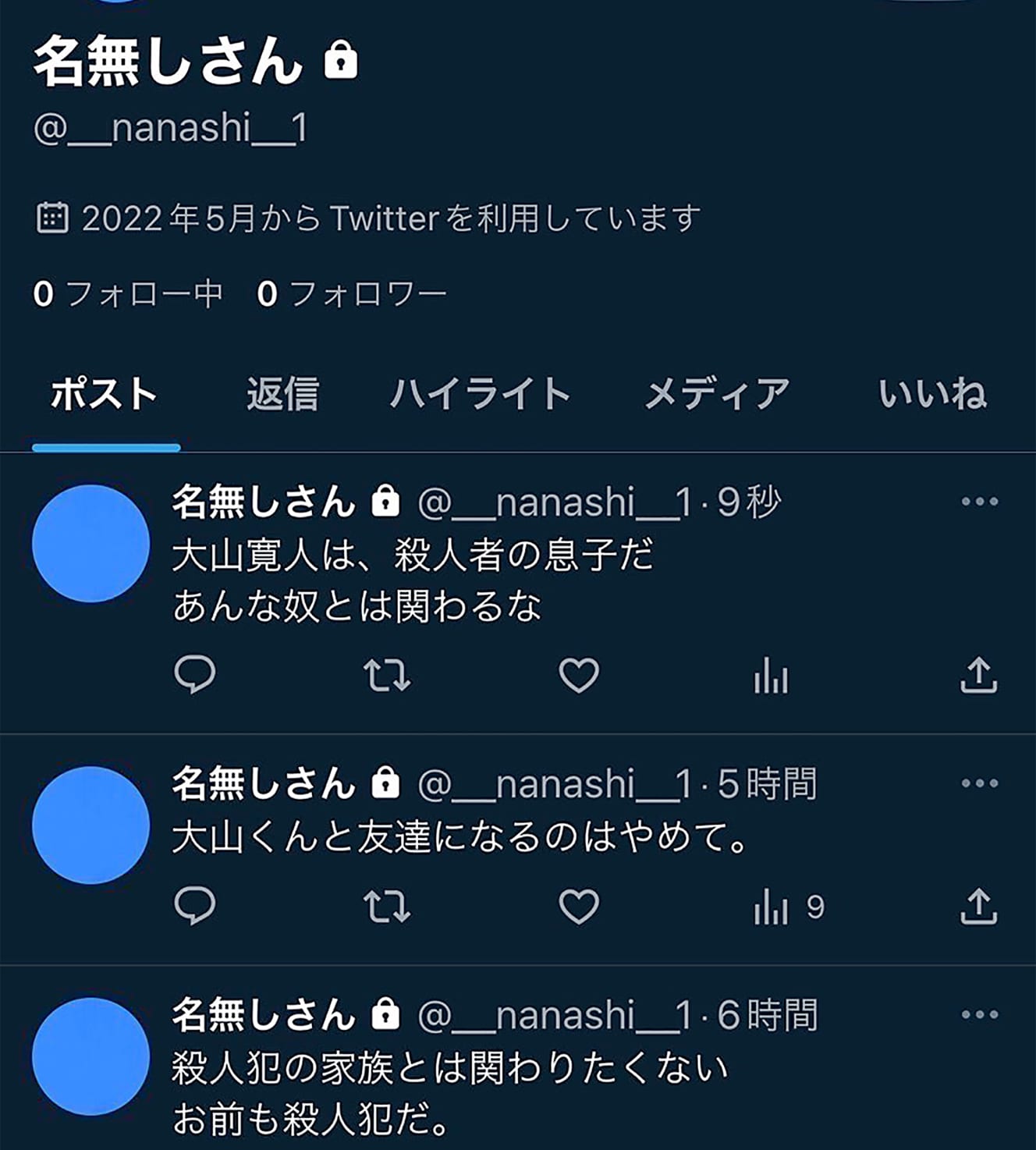Son of Death Row Inmate in Hiroshima Serial Insurance Murder Case Accuses CBC TV of Coercing Fabrication and Staging
Chubu-Nippon Broadcasting Corporation: "I am the son of a murderer! and fabricated a slanderous account.

“Until now, I’ve been interviewed by various media outlets such as television and magazines, but that experience was a first. After parting ways with the production team and being alone, I couldn’t stop crying from anger and sadness. I have no intention of ever being involved with CBC TV again.”
Expressing his anger openly to a FRIDAY reporter is Hiroto Oyama, 36, who resides in Aichi Prefecture.
In October 1998, Hiroto Oyama’s father, death row inmate Kiyotaka Oyama (62), murdered his adoptive father (then 66) for insurance money. In March 2000, his wife and Hiroto Oyama’s mother, 38 at the time, was also killed for the same purpose. As a surviving member of the perpetrator’s family and a victim’s family member, Hiroto Oyama has shared his experiences with the media. It’s reported that he was coerced into fabricating and staging by CBC TV (Chubu-Nippon Broadcasting Co., Ltd., TBS).
“The catalyst was an offer from CBC TV in late April of this year to shoot a public service commercial featuring families of perpetrators. At the time, I agreed because I wasn’t informed of the details. If I had known from the beginning that it involved fabrication, of course, I would have declined.”
And in early May, when Hiroto Oyama went to the shooting location, he was surprised by a request from the CBC representative.
“Suddenly, the representative asked me to read the script they had prepared. The script contained phrases saying that I am the son of a murderer and just because I’m the son of a murderer, I’ve faced discrimination. Then, they said they wanted to film me burning letters sent by my father, and when I told them I didn’t have any, they asked me to burn a dummy letter, saying, I have to pretend it’s a letter from my father and burn it. I understand that the TV station wanted to depict me in the most tragic situation possible, but at the end of the shoot, I felt this shouldn’t be broadcast, so I decided to refuse.”
CBC’s fabricated slander
Amidst Hiroto’s rising anger at CBC’s malicious staging, he was further stunned by an astonishing demand.
“The production staff showed me the screen of a certain X account where slander against me was posted, and they said they want to film me looking sad while seeing this. The slanderous account was created by CBC staff without my consent, and it contained posts saying that I am the son of a murderer, people should stop being friends with me, I am also a murderer, and so on. The staff member showed no remorse whatsoever.”
Seeing this slanderous account pushed Hiroto past his breaking point. He was not only angry but also overwhelmed with sorrow.
“I definitely won’t forgive the preparation of the script or the staging of burning my father’s letters, but somehow I managed to calm my feelings. However, the fabrication of the slanderous text was definitely going too far. Certainly, I’ve been subjected to such slander in the past. However, I truly couldn’t understand why the television station staff would fabricate such text. I wonder what kind of feelings they had when creating it. I think it’s a behavior that deviates from basic human decency. Actually witnessing the fabrication by the television station hurt me much more than the slander I’ve actually received before.”
On the way home after the shoot, Hiroto sent his thoughts about the whole fabricated staging to the CBC TV staff via LINE. He says he couldn’t stop crying for a while in the car on the way back.
“Later on, there was an apology from the CBC side, and I met with the person in charge and their supervisor. However, all they did was offer excuses that they went too far in their desire not to harm people like Mr. Oyama. They got carried away by their enthusiasm and ended up involving Mr. Oyama. I didn’t receive any explanation about why the staff member fabricated that slanderous account. They have no empathy.
I’ve openly shared my name and face, and I’ve truly put myself out there during interviews and speaking engagements. This incident feels like trampling on my thoughts and activities so far. I have no intention of ever being involved with CBC again. And above all, when they interview other families of perpetrators in the future, I strongly hope they won’t engage in such fabrications and won’t do anything to harm the interviewees.”
During the FRIDAY interview, there were moments when Hiroto restrained tears due to anger and sadness.
Afterward, Hiroto sent a formal inquiry to CBC Television seeking clarification regarding the fabrication of the script and the slanderous account. However, the only response received was that they do not respond to inquiries regarding the production and interview process.
Using methods that hurt the parties involved will likely result in ineffective communication.

From the May 31, 2024 issue of FRIDAY
PHOTO: Masahiro Kawayanagi